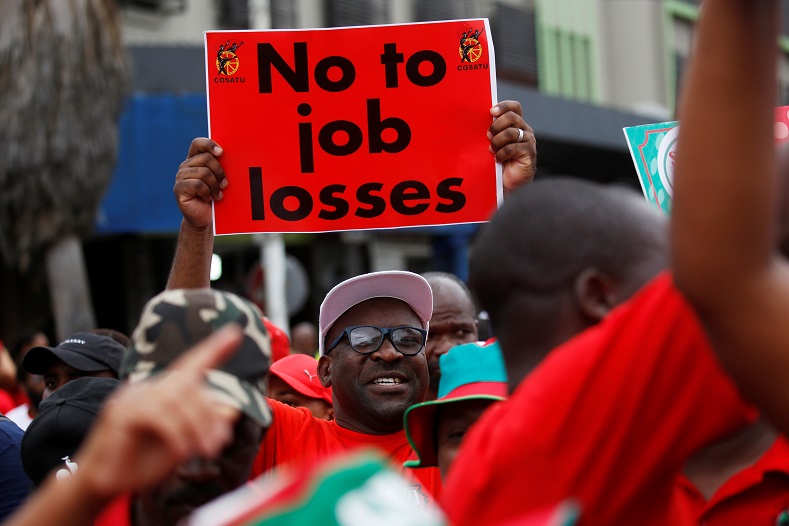The history of trade unions in South Africa is inextricably intertwined with the struggle for social and economic justice. From their humble beginnings in the mines and factories of the early 20th century, trade unions have played a pivotal role in shaping the country’s labor landscape and advancing the rights of workers.

Image: www.telesurenglish.net
Trade unions in South Africa have long been recognized for their militant and effective tactics in confronting employers and the government. They have been instrumental in safeguarding workers’ rights, negotiating better wages and working conditions, and promoting collective bargaining. Today, trade unions represent a significant portion of the South African workforce and continue to be a force to reckon with in the country’s political and economic spheres.
Historic Roots and Struggle for Recognition
The formation of trade unions in South Africa can be traced back to the late 1800s, when skilled artisans and white workers began organizing in response to poor working conditions and low wages. However, it was not until the 20th century that trade unions began to gain a significant foothold among black workers, who faced even more severe exploitation and discrimination.
The Industrial and Commercial Workers’ Union (ICU), founded in 1919, was one of the first trade unions to organize black workers on a large scale. The ICU quickly gained popularity due to its radical approach and advocacy for black workers’ rights. However, the union faced fierce opposition from the government and employers, who were determined to suppress any form of organized labor among black workers.
In the 1940s and 1950s, a new wave of trade unions emerged in South Africa, many of which were aligned with the anti-apartheid movement. These unions played a crucial role in galvanizing workers and mobilizing support for the struggle against apartheid.
Post-Apartheid Developments and Challenges
The end of apartheid in 1994 marked a turning point for trade unions in South Africa. With the removal of legal barriers that had previously restricted the activities of black unions, trade unions were able to expand their membership and influence significantly.
However, the post-apartheid era has also presented new challenges for trade unions. Globalization, technological advancements, and the rise of the informal economy have led to changes in the labor market, posing threats to traditional union membership and collective bargaining power.
Another significant challenge facing trade unions in South Africa is the issue of leadership. In recent years, several high-profile cases of corruption and mismanagement have tarnished the reputation of some unions. This has led to growing disaffection among members and eroded public trust in the labor movement.
Role in Social and Economic Development
Beyond their primary role in protecting workers’ rights, trade unions in South Africa have also played a significant role in broader social and economic development. Unions have been actively involved in campaigns for affordable housing, healthcare, and education for workers and their families.
Trade unions have also been vocal advocates for economic policies that promote job creation and reduce inequality. They have played a key role in shaping the country’s post-apartheid economic agenda, pushing for policies that prioritize the interests of workers and the poor.

Image: wikisouthafrica.co.za
Newspaper Articles On Trade Unions In South Africa
Conclusion
Trade unions in South Africa have come a long way since their humble beginnings. Today, they represent a formidable force in the country’s labor landscape and continue to play a vital role in advancing the rights of workers. However, the challenges facing trade unions in South Africa are significant, and it remains to be seen how they will adapt and overcome these challenges to remain relevant and effective in the 21st century.
As the South African economy and society evolves, the future of trade unions remains uncertain. However, their legacy of empowering workers and fighting for social justice is undeniable. Trade unions will undoubtedly continue to face challenges, but their unwavering commitment to the rights of workers is likely to ensure their enduring presence in the country’s social and economic landscape.






